Greetings
Thank you for checking out my Substack! My name is Michael Novotny, and I’m an artist, author, transdisciplinary researcher, and US Army veteran (1SG RET). Having survived one of the longest and most tumultuous periods of war in United States history, I now have the distinct honor of being called a veteran. I transitioned from service in 2022, and over the last three years, I’ve developed some serious concerns about the mundane and unimaginative transition process. I would describe much of it as unceremonious, rushed, and more stressful than my actual service. Every warrior’s return is unique, but I am certainly not alone in my desire for a more creative and intentional homecoming. As a service-oriented leader and PhD Candidate, I aim to breathe new life into the transition process.
Affiliations
El Paso VA Council Member
Media & Publications
Project Overview
This summer, I am embracing the role of a Jungian Alchemist, dreaming and designing a pilgrimage of warrior reflection, creativity, relationship building, and reclamation. This journey will take me to six military locations within the United States, where I served between 2001 and 2022. I intend to bring ceremonial closure to my warrior journey in a way that 1) explores and honors the path and 2) redraws and reconnects relational patterns with the Earth and more-than-human community. The purpose of this work is to open up possibilities for a transition that celebrates historicity, diversity, lineage, legacy, art as spirit, and Earth as teacher. This vision seed is a regenerative offering planted in honor of all warrior veterans seeking to creatively initiate their path of return.
This pilgrimage is partially inspired by the three universal stages of the Hero’s Journey—departure, initiation, and return (Campbell, 1949). The return is a fundamental part of the warrior’s epic that is recognized and honored across many cultures and wisdom traditions. It is a symbolic period that, when properly acknowledged, can facilitate healing, understanding, and movement toward maturity. My tentative pilgrimage plan includes traveling to six military bases over 35-40 days. The pilgrimage route will be in a large circle covering a total distance of 2800 miles. Below is a map of the route.
The Research
As I pilgrimage, I will also be conducting my PhD qualitative research that invites opportunities for (1) Earth acknowledgment and place-based healing, (2) personal growth and self-illumination, (3) ceremonial closure of the warrior journey, and (4) reclamation of imagination and creativity through spontaneous artmaking and dream tending.
Terrapsychology is the primary methodology I will be using. It is a field of imaginative studies, practices, and ideas that aim to captivate and reenchant our relationship with ourselves, each other, and the world (Chalquist and Barnwell, 2024). In the family of psychological disciplines, depth psychology is the father, ecopsychology is the mother, and terrapsychology is considered the child. It is a fairly young methodology that is filled with promise and boundless potential for discovery because it situates the psyche within a co-animated world. The insights gained from terrapyschology have the potential to widen and deepen the field of psychology significantly (Chalquist and Barnwell, 2024). This methodological framework will guide me as I dive into subfields such as Archetypal Geography, Earthdreaming, and Dialogical Alchemy during my pilgrimage.
My Warrior | Dreamer Lineage
Before I dive into more details about my pilgrimage vision seed, I want to acknowledge my lineage of service members and dreamers. Below is a photo of my Grandfather (Dudley), Grandmother (Tymme), Great Uncles (Rosevelt, Fred, Lorenzo), Father (Mike Sr.), and Brother (Nicholas).
We committed ourselves
to the American dream
sometimes mistaken for the enemy within
not serving to uphold what America was
but serving the idea of what America could be
—Mike Novotny, 2/9/25
Warrior Historicity and Initiation
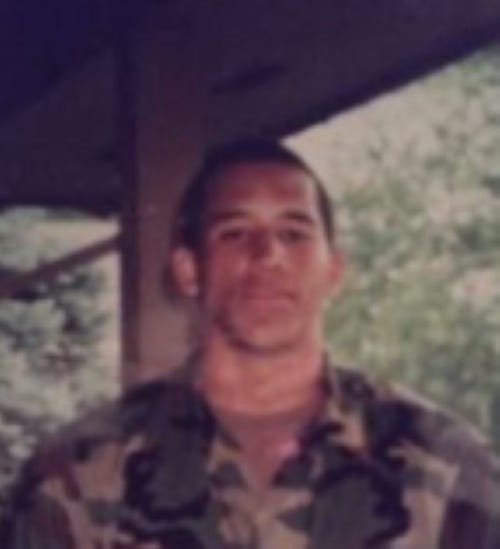
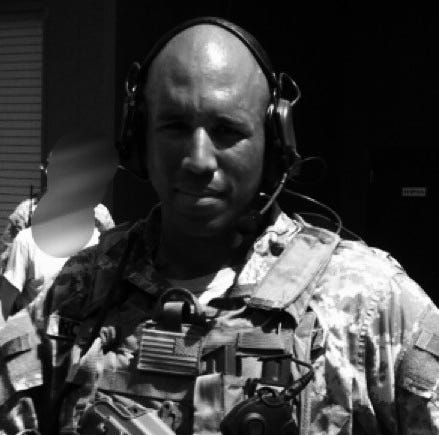
My rite of passage into the warrior culture began Nov 30, 2000. I was 17 years old when I took my oath of enlistment and signed my first contract. The 9/11 attacks occurred only 10 months into my warrior indoctrination, catapulting hundreds of thousands of us into what “the West” called, the Global War on Terror (GWOT). With a quick spark, the United States military was launched into one of the longest historical campaigns since Athens and Sparta fought each other around 430 BC.
During that period, I watched good men to my left and right come and go as our fighting force participated in build-ups and drawdowns, infills, and exfils. From Iraq to Syria to Africa to the Indo-Pacific to Afghanistan, I began to understand how dynamic and complex this campaign truly was. Throughout my service, I climbed to the position of First Sergeant, a rank that only .08 percent of active-duty Soldiers will ever reach. Although my career was going well, I could not help but notice that I was serving under many truths. The first truth was that I felt proud to be of service to my country. The second was that the GWOT was causing bright stars to burn out fast [deep exhale]. The third truth was that, as wars in the Middle East ended unceremoniously and warriors returned home in the same fashion, we found ourselves in yet another fight. The fight for identity, purpose, and belonging. One might argue that the challenge to come home can be much more frightening than deploying into a war zone. Veterans must be willing to answer questions like:
Who [or what] is welcoming me home?
What gifts do I have to offer the world at this time?
What supports my flourishing?
What warrior wounds are keeping me from rising to my fullest potential?
The Warrior’s Return
Veterans make up a rather large and diverse vulnerable population within the United States. According to the Department of Labor (2024), nearly 200,000 women and men exit the military annually. The United States Census Bureau (2023) estimates that 16.2 million veterans (6.2% of the total civilian adult population) reside in America and between 25 and 45% of them experience difficulty navigating civilian life which includes things like social relationships, economic stability, education, and working while managing service-connected disability (DeGroat, 2016; Mitchell, 2017). Roughly 17-24 veterans take their own lives each day because they can no longer cope with their challenges (Mission Roll Call, 2024). Despite the countless initiatives and various veteran support organizations established in recent years, veterans struggle to find a sense of purpose, belonging, and true identity after their service has ended.
Our veteran warriors need much more than a good resume and DD214 when they return home. They need safe and visionary ways to illuminate, reflect, and integrate what they endured. And it is in society's best interest to creatively support the warrior in that process. If the nation can support the warrior through the reintegration and reconciliation period, the warrior has a much stronger likelihood of developing a post-service positive identity.
Visionary Practices for Healing
In 2012, while still serving on active duty, I became highly curious about natural ways of treating some of my physical and mental warrior wounds. I started addressing them with mindful movement (yoga), slow deep breathing practices, and art making. As I deepened into these practices, I found meditation, dream tending, reflective writing, and PILGRIMAGE. I found these medicines to be abundant, extremely potent, and illuminating!
When I took my uniform off in 2022, to no surprise, I quickly encountered the common transition challenges. I also went toe to toe with what Tricia Hersey (2022) calls “the grind culture.” A culture that encourages veterans and civilians alike to work work work. This type of culture is notorious for subtly encouraging us to ignore our sense of personal agency and creativity, or make proper time for self-care. After fighting against the grind culture for a while, I knew I had to dive into the work of exploring a stronger sense of post-service identity, to find a doorway beyond the mundane form of existence that corporate America wanted me to embrace.
I deeply desired to be in relationship with the Earth that I had marched across, and to explore the many diverse intersections I did not make time for while embodying the warrior archetype. In the past three years, with the help of mentors, family, friends, and many healing practitioners at Southwestern College, Santa Fe, I came to see and accept my historicity, lineage, and legacy as a black man, proud father, veteran, artist, writer, and eco-lover. I also came to see myself as a helper of humanity, a change agent, protector, and innovator. To confidently walk into these intersections with love, compassion, and grace, I would like to ceremoniously close the circle on my warrior journey. This is the story of my becoming, and I hope you will follow along!
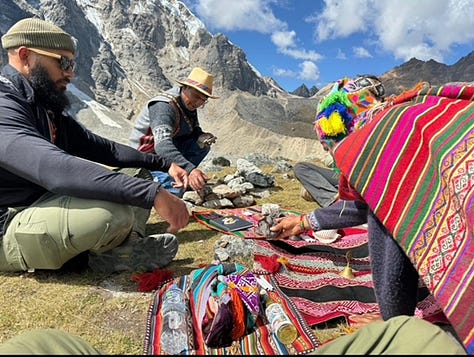
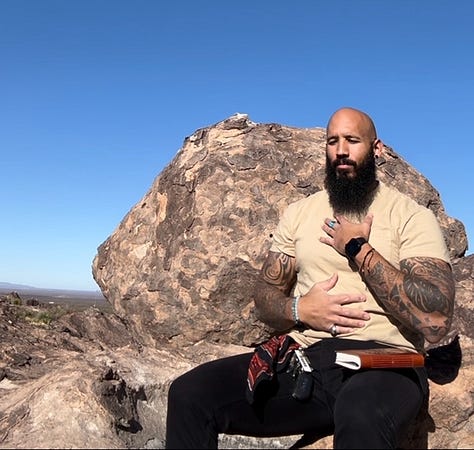
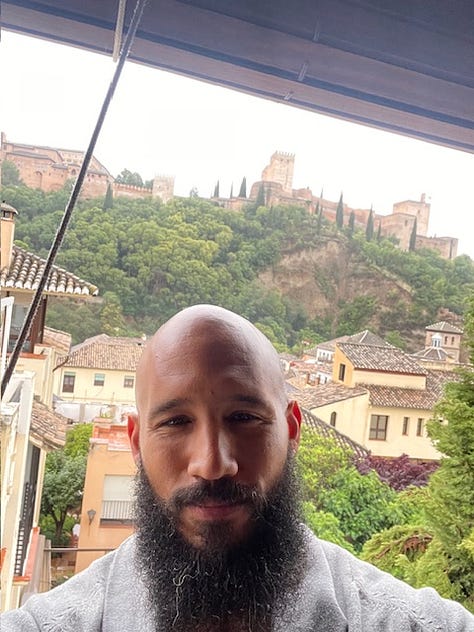
The Wisdom Council | Dissertation Committee
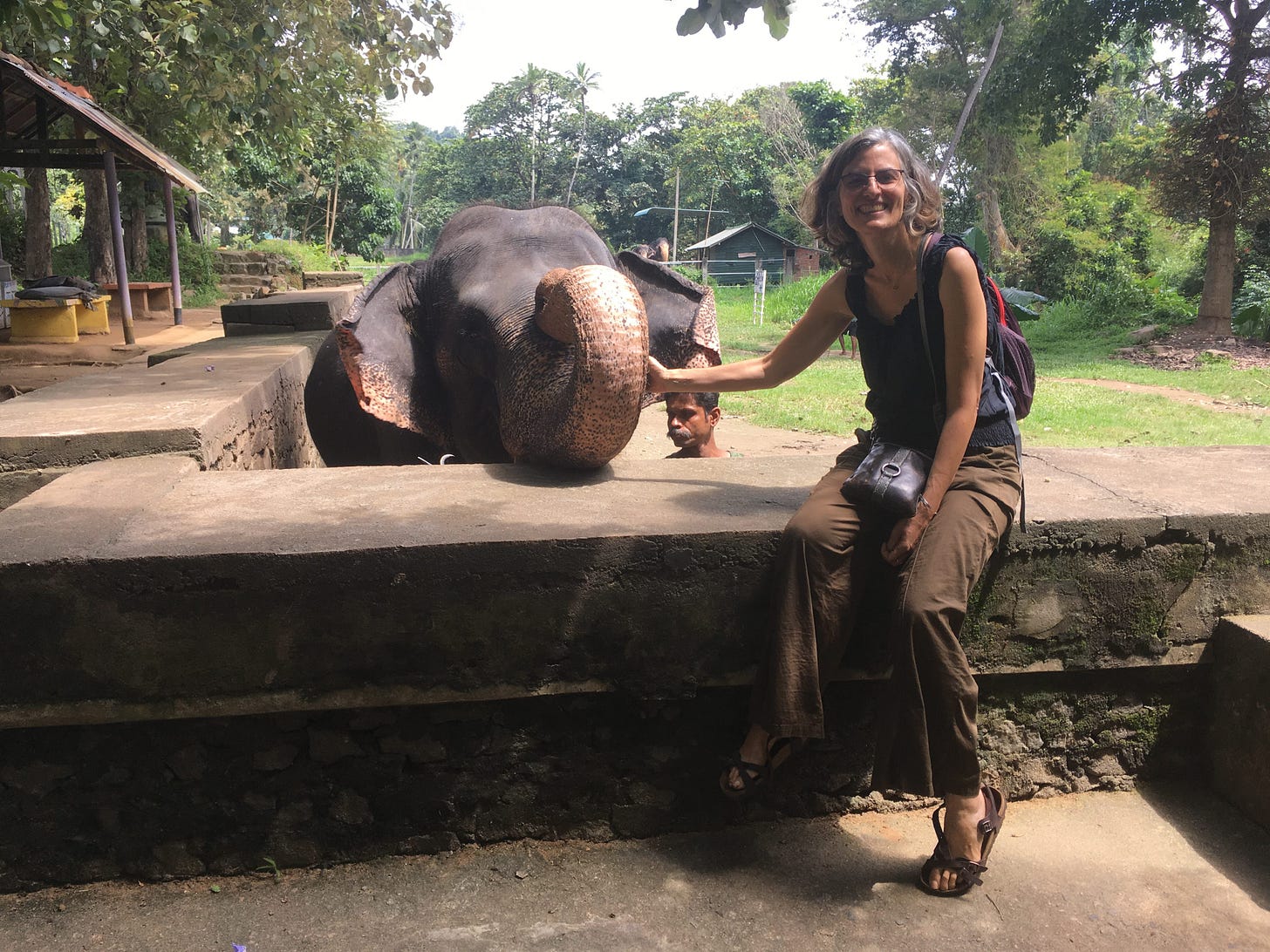
Elizabeth Oriel, PhD is a mother, researcher, writer, artist, mentor/teacher, and healer. Her PhD research as a Bloomsbury Scholar at the University of London in Global Studies, examined human-elephant conflict in Sri Lanka. Her research methods include more-than-human ethnography and arts-based research to explore socio-ecological systems. Her postdoctoral work at Aarhus University involved teaching and research into changing lifecycles of plants and animals are presented in the media. Among numerous publications in academic and popular journals, her monograph, Shaped by Vegetal Matters: Phyto-Influence on Humans, Other Animals, and Place (2025, Lexington Books) offers five case studies in which plants shape humans and their relations and cultures. Multispecies politics, human/more-than-human coexistence, more-than-human voice and agency, human-plant relations, and non-human animal thriving are research themes. Her newest work submitted for publication is a series of artworks that present other species’ perspectives and voices to aid in building an earth-based politics. She currently works as a faculty mentor with PhD students at Southwestern College in New Mexico.
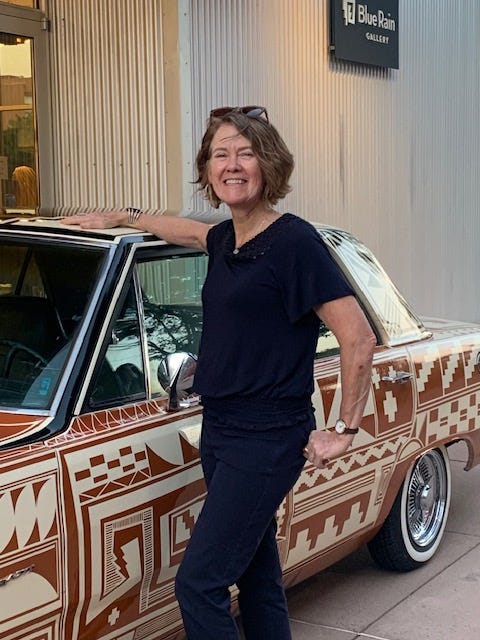
Jill Griffin, PhD is the founder of the HERD Project, a nonprofit organization that supports teen girls to move through trauma and learn how to lead happier lives by building self-esteem, confidence, positive attitudes, and a heart-centered way of relating to the world. As a therapist, she is licensed with a LADAC, is a Certified HeartMath Health Professional and her PhD is in Mythology and Depth Psychology from Pacifica Graduate Institute. She has over 20 years of experience in the counseling field and enjoys working with dreams and the urgings of the unconscious. Jill recently completed building a barn and brought two new horses to bring healing to her clients. The HERD Project is a community of horse, heart and healing in which people and animals together engage in co-regulation and heart centered presence.
References
Chalquist, C., & Barnwell, G. (2024). Terrapsychology: Further inquiry into self, place and planet. Routledge.
Hersey, T. (2022). Rest is resistance: A manifesto. (T. Hersey, Narr.) [Audiobook]. Audible. Little, Brown, & Spark
Mission Roll Call. (2024). The state of veteran suicide (2024). https://missionrollcall.org/veteran-voices/articles/the-state-of-veteran-suicide/.
Tick, E. (2014). Warrior’s Return: Restoring the soul after war. Sounds True.
United States Census Bureau. (2023). Veterans Day 2023: November 11. https://www.census.gov/newsroom/facts-for-features/2023/veterans-day.html.
United States Department of Labor. (2024). Transition Assistance Program. www.dol.gov. https://www.dol.gov/agencies/vets/programs/tap







Thanks for sharing your work. I am a big fan of Terrapsychology as well. Looking forward to hearing more of your journey
Michael
Congratulations for what you have done here, it is ingenuous. I hope the world reads your book, its contents are valuable to all. We are proud of you. Mega love & prayers for you
Grandma